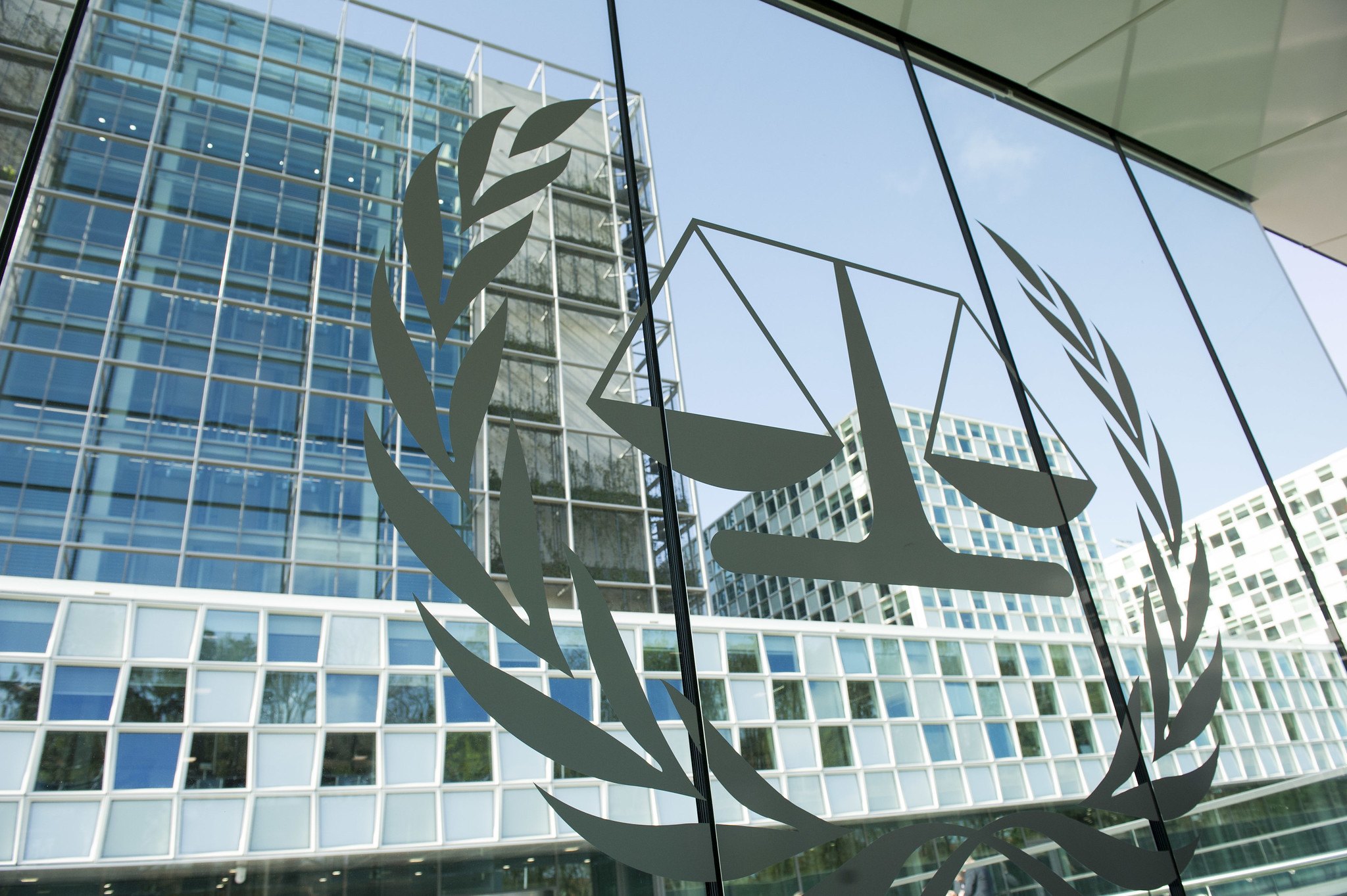Could the TikTok and WeChat Executive Orders Undermine IEEPA?
The administration’s move may invite additional restrictions on the application of a key U.S. foreign and security tool.

Published by The Lawfare Institute
in Cooperation With

On August 6, President Trump issued two executive orders targeting popular apps owned by Chinese companies. One order would ban transactions with ByteDance, the Chinese owner of TikTok. The other would ban transactions with Chinese company Tencent Holdings related WeChat, a multi-service messaging app widely used in China as well as among the Chinese diaspora and foreigners doing business in China.
The orders were rightly received as a significant escalation of tensions between Washington and Beijing. Commentators have observed that the administration’s move is a major step toward further balkanization of the internet, with powerful countries restricting or preventing access to foreign apps and technology and creating exclusive spheres of control over networks. While the order on TikTok has received the most attention, many analysts have warned that effectively banning WeChat would be a devastating blow to the ability of U.S. persons to connect with people in China and to do business in the country. Some commentators have questioned the national security rationale the administration put forward in support of its actions, pointing to gaps and oversights in preparing for its potential repercussions.
For now, the immediate legal implications of the executive orders are unclear and fairly limited. The specific restrictions the orders provide for will only become effective in 45 days, and they depend on further action by the secretary of commerce (though Bobby Chesney suggests that the secretary’s role may be limited).
But the orders could have an unexpected yet important indirect effect. At least with respect to TikTok, the president’s action constitutes a particularly bold and unusual application of the International Emergency Economic Powers Act (IEEPA) against a powerful target with robust U.S. presence. What’s more, the action arguably raises First Amendment issues. If the restrictions against TikTok ever reach the courts, the judiciary might not be as deferential to the administration’s national security argument as it typically has been in previous cases involving sanctions pursuant to IEEPA. The administration’s move may invite more judicial scrutiny than usual that could result in additional restrictions on the application of a key U.S. foreign and security tool that has hitherto been exercised relatively freely.
The Orders
The two orders are very similarly structured, invoking IEEPA and the National Emergencies Act as the source for the president’s authority. Chesney recently provided a useful overview of the relevant aspects of IEEPA as applied to TikTok. In a nutshell, IEEPA grants the president broad authority to take extensive economic measures in response to an “unusual and extraordinary” threat to the national security, foreign policy, or economy of the United States, if he declares an emergency with respect to that threat. That authority includes the power to impose sanctions on individuals and entities:
(a)In general
(1)At the times and to the extent specified in section 1701 of this title, the President may, under such regulations as he may prescribe, by means of instructions, licenses, or otherwise—
(A)investigate, regulate, or prohibit—
(i)any transactions in foreign exchange,
(ii) transfers of credit or payments between, by, through, or to any banking institution, to the extent that such transfers or payments involve any interest of any foreign country or a national thereof,
(iii) the importing or exporting of currency or securities,
by any person, or with respect to any property, subject to the jurisdiction of the United States;
(B) investigate, block during the pendency of an investigation, regulate, direct and compel, nullify, void, prevent or prohibit, any acquisition, holding, withholding, use, transfer, withdrawal, transportation, importation or exportation of, or dealing in, or exercising any right, power, or privilege with respect to, or transactions involving, any property in which any foreign country or a national thereof has any interest by any person, or with respect to any property, subject to the jurisdiction of the United States; […]
The orders do not declare a new emergency, but instead rely on the national emergency Trump declared in May 2019 with respect to “Securing the Information and Communications Technology and Services Supply Chain.” According to the orders, both TikTok and WeChat pose a national security threat because they facilitate the transfer of troves of data about Americans to the Chinese government. The apps, the orders claim, also serve as conduits for the Chinese government to control undesired narratives and spread disinformation.
The operative portion of the orders provides that, beginning in 45 days, any transaction by any person subject to the jurisdiction of the United States with ByteDance, and any WeChat-related transaction with Tencent, will be prohibited. However, the orders also provide that “45 days after the date of this order, the Secretary [of Commerce] shall identify the transactions subject to” the prohibition. This could suggest that not every transaction would in fact be prohibited.
The requirement for further implementing action arguably renders the orders inoperative until such time as the secretary of commerce decides which types of “transactions” would be subject to the ban: Offering the apps on app stores? Downloading the apps to a personal device? Uploading content? Failing to erase a previously downloaded app? For now, there is ambiguity as to the scope of the prohibition.
Notably, many commentators have pointed out that the WeChat order could prohibit transactions with additional U.S. companies owned in whole or in part by Tencent—which has significant stakes in several gaming apps, among other interests in U.S. companies. In my view, a better reading of the order is that it would not reach transactions with Tencent unrelated to WeChat, as the order explicitly refers to “any transaction that is related to WeChat … with Tencent Holdings” or its subsidiaries.
The reason for the 45-day grace period in the executive orders appears to be the ongoing negotiations between Microsoft and ByteDance to potentially acquire a significant chunk of TikTok operations, including its U.S. operations. Trump famously expressed his dismay at the prospect of such an acquisition, but Microsoft leadership as well as senior administration officials have reportedly managed to persuade the president to avoid action that would preclude a deal. September 15 appears to be the target date for the conclusion of the negotiations, while the executive orders should become operative about a week later. Of course, if TikTok is no longer owned by ByteDance at this point, the executive order’s ban on transactions would no longer apply to the app.
Overextending IEEPA?
At first blush, this most recent application of IEEPA to impose sanctions is in line with previous practice. Since the enactment of IEEPA, and more frequently over the past two decades, U.S. administrations have used the statute to impose a variety of economic restrictions to advance numerous foreign and security policy goals. These objectives have included counterterrorism and non-proliferation of weapons of mass destruction, as well as combatting state-centered challenges such as Russia’s various nefarious activities, Iran’s nuclear program and the Syrian civil war. In recent years, IEEPA has been increasingly invoked to address cyber threats such as election interference and the stealing of trade secrets by adversaries. The United States currently has more than 35 national emergencies in force—all triggering the broad IEEPA sanctions authorities.
In recent work, I have documented the evolution of IEEPA’s application since its enactment, as well as how courts have addressed related government action. Courts have interpreted presidential authority under IEEPA broadly. In the seminal case of Dames & Moore v. Regan , the Supreme Court found that “[T]he IEEPA delegates broad authority to the President to act in times of national emergency with respect to property of a foreign country.” While the Supreme Court has yet to review concrete sanctions pursuant to IEEPA directly, lower courts have been deferential to the government in the relatively few such cases that they have decided. As I previously observed, “[w]hen courts have ruled against the government, it was mostly on constitutional [rather than administrative law] grounds. Constitutional protection is not available to the vast majority of designated persons, who tend to be aliens without substantial U.S. ties.” Furthermore, the courts do not tend to question presidential national emergency declarations in sanctions cases.
In light of past practice, one could plausibly argue that the TikTok and WeChat orders, if implemented, would be a lawful exercise by the president of his broad delegated powers under IEEPA to act against foreign interests in the U.S. after declaring a national emergency. There is reason to believe that the Supreme Court will not question the breadth of this delegation, nor second guess the president’s national security assertions about the links between TikTok, WeChat and the Chinese government, or the national security threat that they ostensibly pose. (This is not to say that these arguments deserve such deference.)
The IEEPA application at hand has a lot in common with the Supreme Court’s travel ban decision, in the sense that both cases involve broad congressional delegations of national security and foreign affairs authority to the president. As readers may recall, a majority of the Supreme Court justices in the travel ban case took no issue with the broad delegation of power to the president to ban entry to the United States on grounds of national security and the national interest. The Supreme Court also declined to look behind the veil of the president’s national security justification in that case despite evidence that the travel ban was driven not by national security concerns but by anti-religious animus.
Nevertheless, at least with respect to TikTok, there is a very big “but.” Unlike many targets of IEEPA sanctions, TikTok is an immensely popular application used in millions of U.S. households. While it is owned by a Chinese company, it has a robust presence in the United States with offices in major cities. This means that TikTok enjoys the full protection of the U.S. Constitution. In other words, this is not your average Russian troll farm, Iranian centrifuge equipment manufacturer or Syrian regime official. There is also room to distinguish the travel ban case in this respect, as those subject to the travel ban (at least in its final version) were mostly aliens with no U.S. presence.
Another key distinguishing factor between TikTok and IEEPA’s typical targets is that TikTok offers a widely-used platform for U.S. entities and individuals to engage in self-expression—including political expression—and to share original content. This opens up a potential First Amendment challenge to essentially banning the platform from the United States after the implementation of the president’s executive order. In this respect, going after TikTok is even bolder than sanctioning Chinese tech giant Huawei, the target of numerous recent U.S. economic restrictions.
There is a lot to unpack with regard to the viability of a First Amendment challenge here, a task I will leave for another day. I will only note that the Supreme Court was not impressed with past First Amendment challenges to national security sanctions, albeit in a different context. In Holder v. Humanitarian Law Project, the Supreme Court rejected a First Amendment challenge to the prohibition on providing material support to the PKK, a foreign terrorist organization designated under a different statute, the Antiterrorism and Effective Death Penalty Act of 1996. In so holding, the Supreme Court gave great deference to the executive branch’s judgment that any kind of support for terrorist groups, even benign support such as the provision of international law training, could further their harmful activities. Such deference was warranted, the court found, because of the sensitive national security and foreign relations interests at stake. Still, the question is whether this analysis translates to effectively banning a platform that has tens of millions of U.S. users, and whose main function is to enable expression.
After the administration issued the executive orders, TikTok was quick to respond. It has already vowed to “pursue all remedies available to us”… “in order to ensure that the rule of law is not discarded and that our company and our users are treated fairly — if not by the administration, then by the U.S. courts.” If the Microsoft purchase falls through, and the TikTok executive order is implemented to essentially ban the app from the U.S., the administration may discover that it has extended IEEPA a step too far. The app is different in important ways from typical IEEPA sanctions targets. Those differences could invite more searching judicial scrutiny of the administration’s national security rationale—and, along with it, potential new restrictions on the application of a tool that the U.S. government currently relies on to address virtually every important foreign policy and national security issue.





